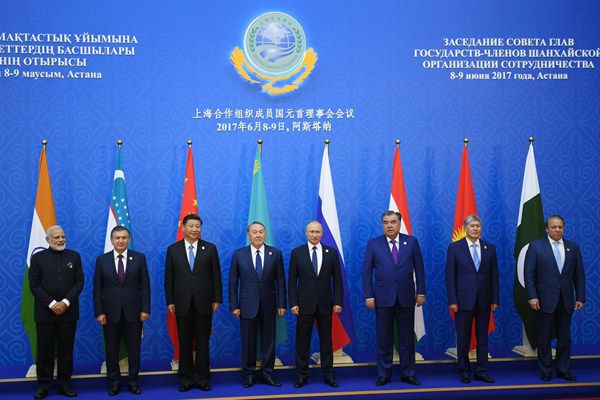For much of its 16 years of existence, the Shanghai Cooperation Organization, or SCO, has carried perhaps the greatest promise of any multilateral organization in Eurasia. Made up of Russia, China and four of the five Central Asian states—Turkmenistan, characteristically, kept the organization at arm’s-length—the SCO hasn’t just provided a high-level forum for discussing regional counterterrorism efforts. It has offered an outlet for Moscow and Beijing to coordinate their security and, increasingly, economic policies without concerns of Western input. The SCO was never quite a “counterweight to NATO” as some asserted, but it provided the groundwork for cohesion to come.
Now, for the first time since its inception in 2001, the SCO has welcomed new members, with India and Pakistan formally joining at the group’s summit in Astana in early June. With the appropriate fanfare and photo-ops, Indian Prime Minister Narendra Modi and Pakistani Prime Minister Nawaz Sharif, along with their Chinese and Russian counterparts, showered plaudits on the SCO. Sharif even went so far as to describe it as an “anchor” for regional stability. The SCO, he said, is “destined to become a cornerstone of global politics and economics.” Chinese President Xi Jinping added that the “Shanghai spirit”—an ephemeral catchall for the group’s supposed ethos—“has inspired a strong sense of solidarity which ensures the growth of the SCO.”
Xi’s commentary is, in a sense, accurate, insofar as the SCO may soon expand beyond South Asia; Russian representatives appear keen on sealing Iran’s membership in the near future. However, where the “Shanghai spirit” may have previously provided some sense of cohesion within the SCO, its expansion has not only paralleled a decline in effectiveness as a regional bloc, but unleashed any number of questions about the SCO’s continued purpose.

